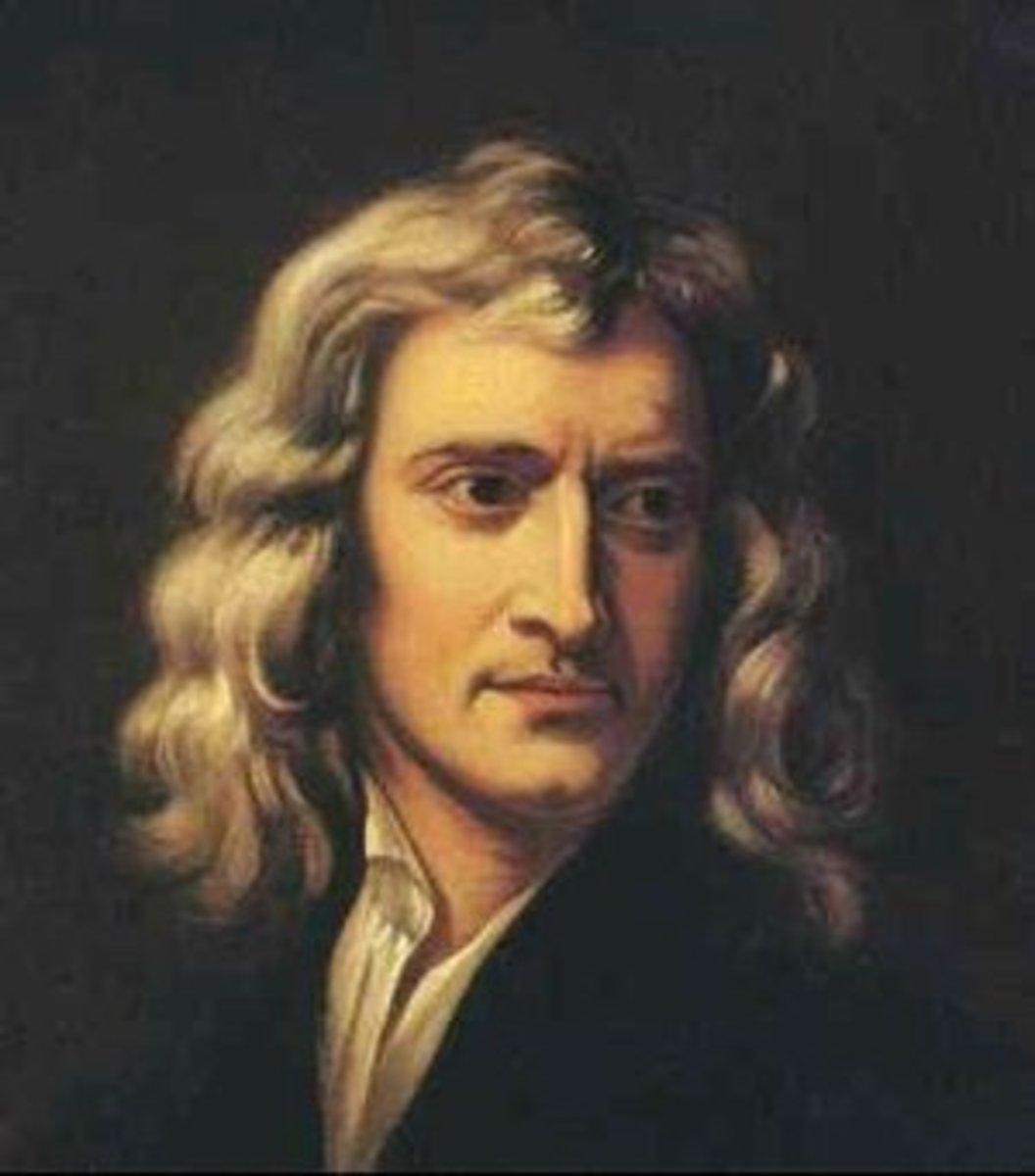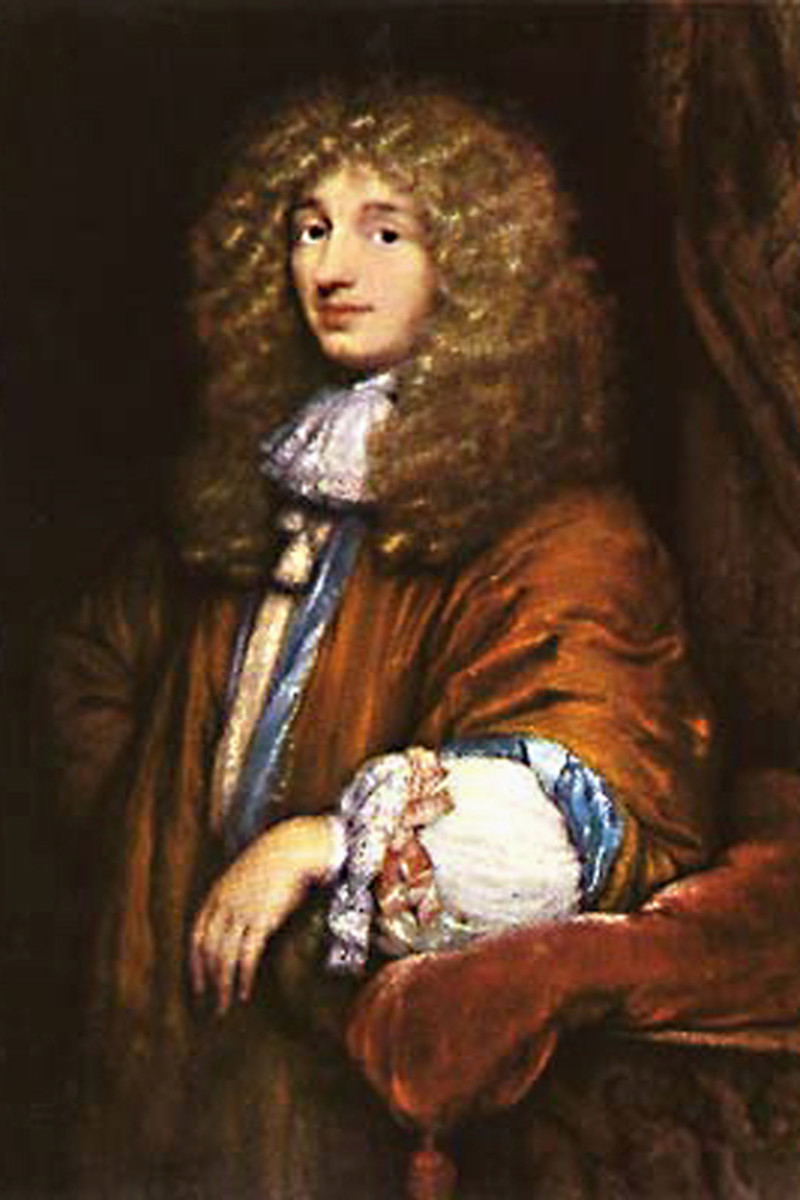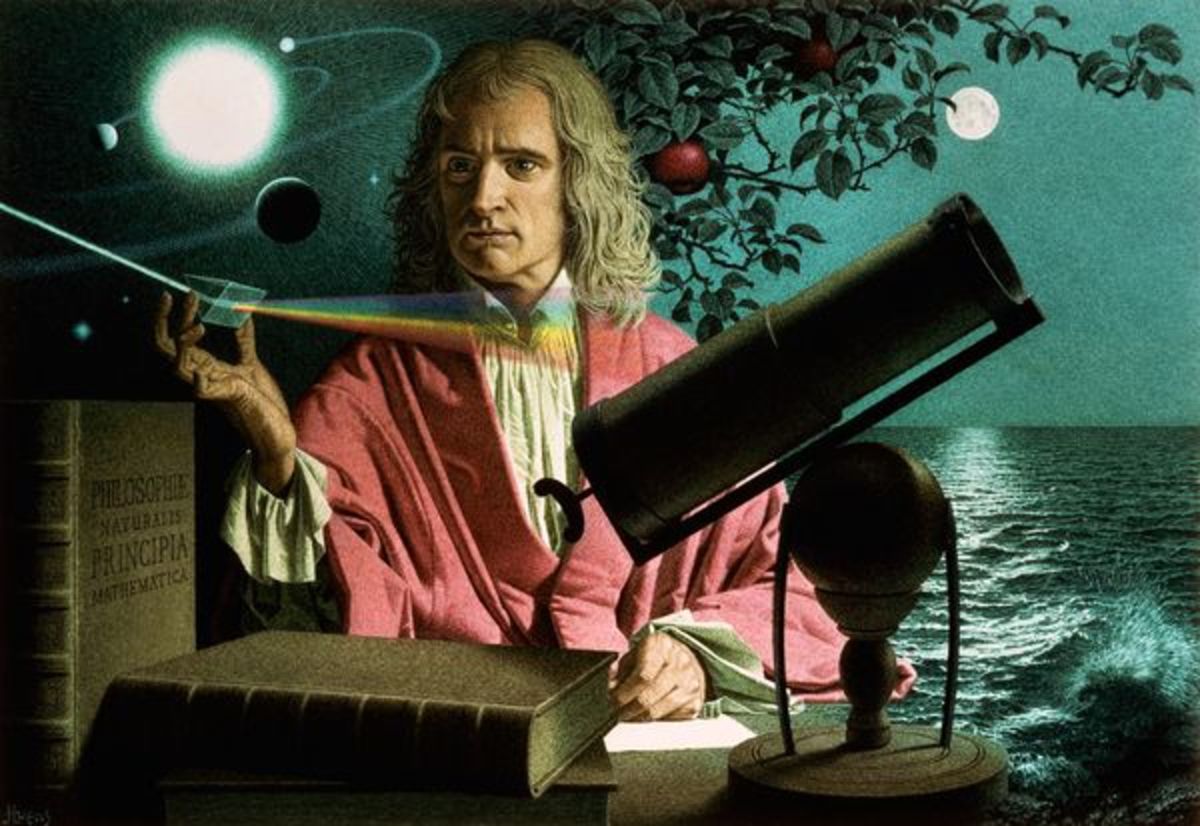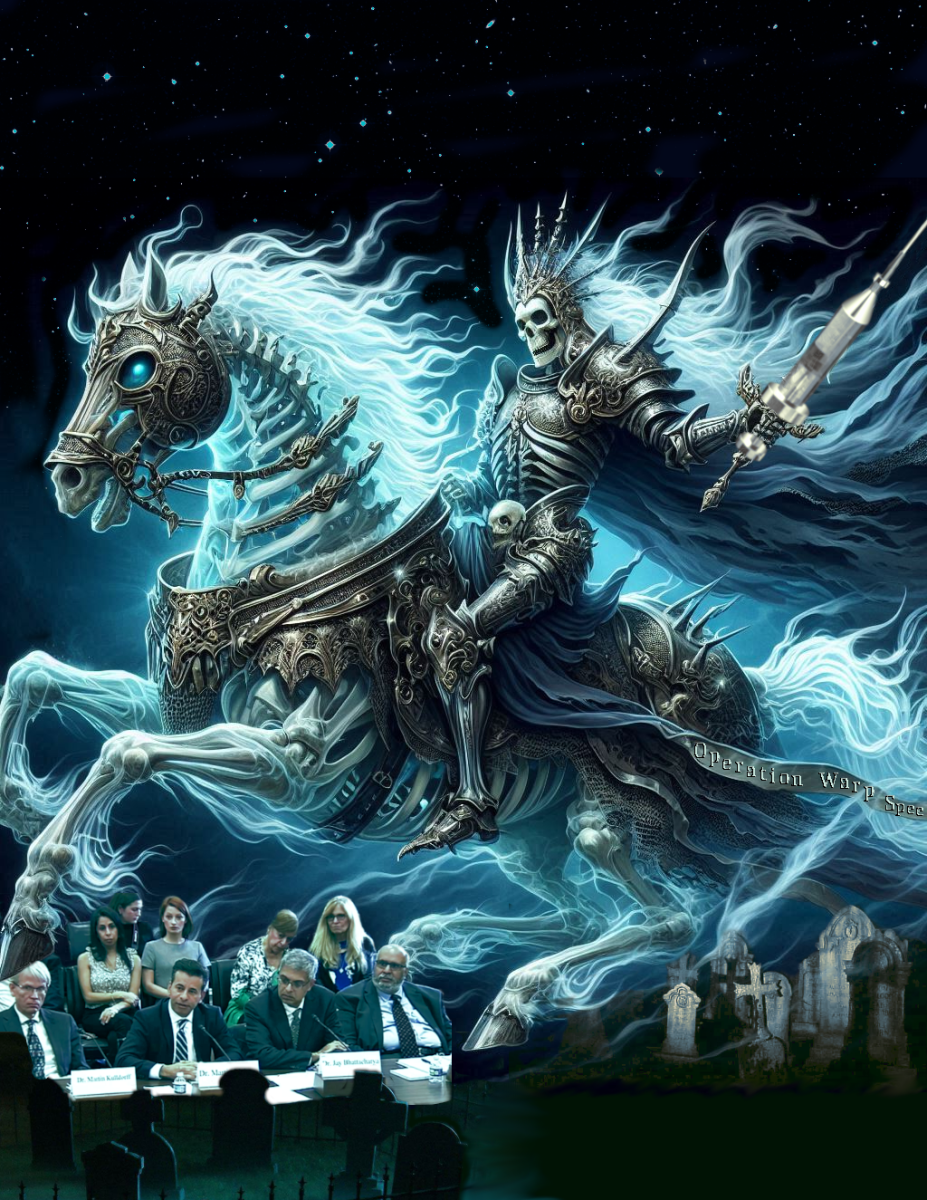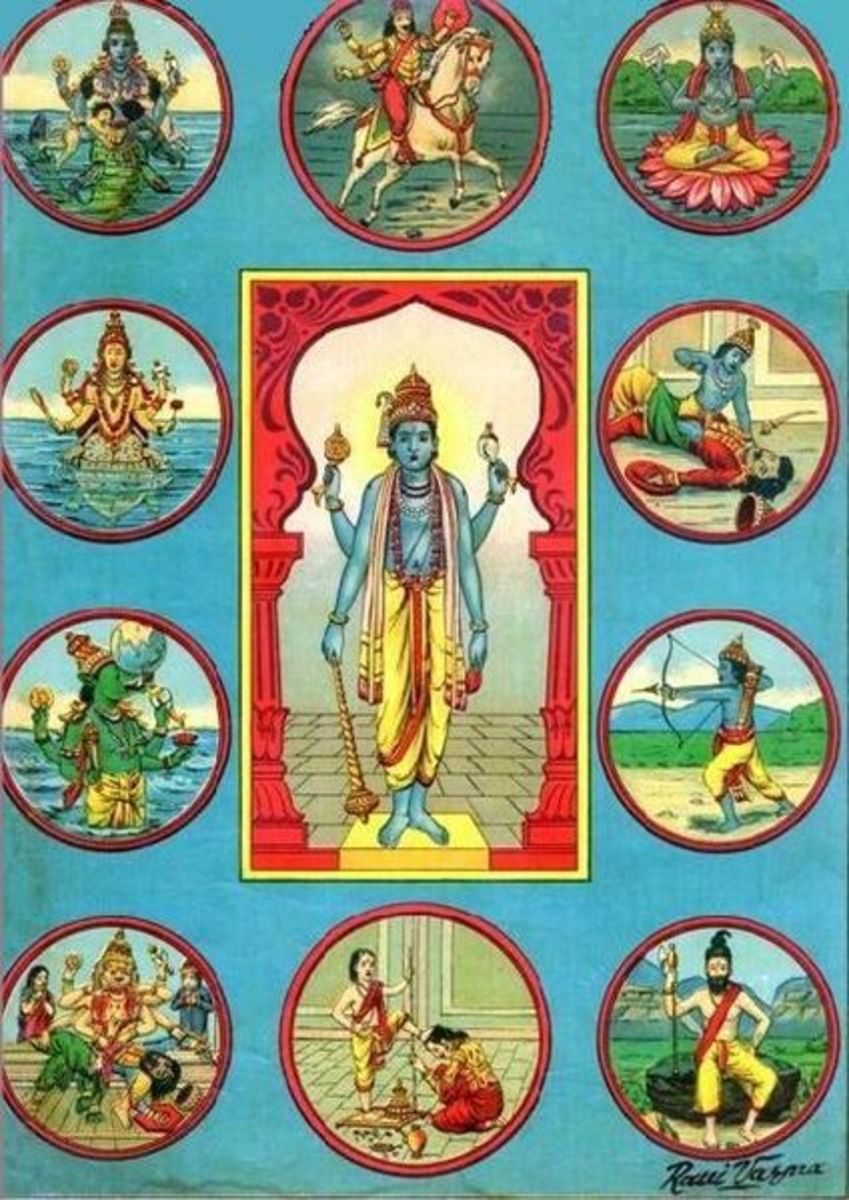SCIENTIFIC THEISM : Einstein v Newton
I was then doing my degree when one day a classmate-cum-college-years-associate of mine claimed that Einstein also believed in God. He told this with a view to justifying his silly belief in God and gods as well as silly practices such as worshipping a naked female's image they call goddess Kali, etc. He was not known as an intelligent boy; nor was he a serious thinker. It was the first time when I heard of such bizarre stuff about the world-famous scientist, the discoverer of the relativity theories, so I thought I'd better keep mum on the issue before I knew of details of it. Later on, I learnt that it was not Dr Albert Einstein alone that believed in God, but Sir Issac Newton, another great scientific figure, also cherished similar silly ideas. Nevertheless, after careful study, I found out that not only are what they believed outright hollow, the way the two great scientists behaved on this question leaves a lot to be desired. The purpose of this discourse is throw light on these points. Science consists of observation, postulation, experimentation, and conclusion based on incontestable proof. Science has no room for blind, unfounded theistic dogma. Thus, the phrase ' SCIENTIFIC THEISM ' is obviously a contradiction in terms. However, I've used it in an ironical sense, i.e. the theism of some scientists.
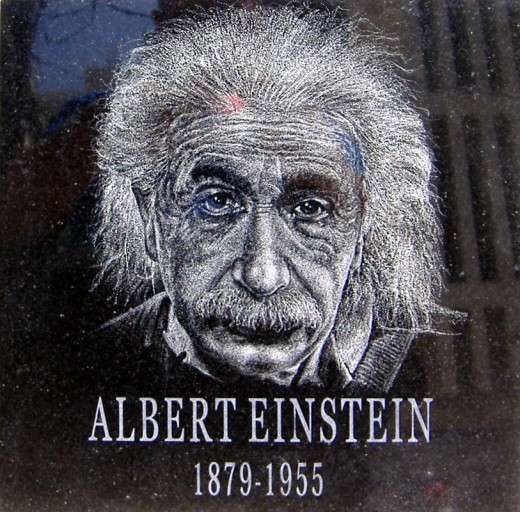
The name ' Einstein ' makes us visualise an old man who in his youth discovered the Theory of Relativity and the equation E = mc2, and who originated the concept of Black Hole. I find it most intriguing, and amazing too, that this Great Man of Science shared the metaphysician Spinoza's ridiculous view of God.,
God or Gods ?! What is it Einstein really believed in ? Is it right to say Einstein was a theist ?
The English ‘God’ is a singular noun. This means the use of ‘Gods’ is un-English. Nevertheless, there are, in reality, more than one God. The theistic God, unlike the deistic God, responds to human prayers. The Christian monotheistic Trinity ( the oneness of God the Father, God the Son, and God the Holy Spirit ) conflicts with the Islamic Allah. The pantheistic God didn’t create the universe while by theism, deism, and monotheistic faiths, God is the Creator. Further, there’s the dystheistic view of the malevolent God, which obviously contradicts the theistic view that God is all-merciful and benevolent. Some people believe God is incorporeal while some others love to cherish the idea that God the Father created humans in His very own image. The Biblical God and the Vedic God both are masculine. There happens to be no female God. However, there seems to be no dearth of female gods.
From the foregoing, it follows that God is not alone nor without peers. And it doesn’t at all seem easy for a sensible human to choose the right one out of so many Gods. Statements like ‘ Einstein believed in God ‘ or ‘ Einstein was a theist ‘ are half-truths. The whole truth is the originator of the equation E=mc2 believed in what he himself described as ‘ Spinoza’s God ‘. A philosopher and pantheist, Spinoza believed that God was indistinguishable from the universe. The creator cannot create itself. Hence, by Spinoza’s view, God can’t be the Creator. The Spinoza’s God is neither masculine nor feminine and doesn’t concern itself with affairs of human beings. It’s only concern is to keep order and harmony in the universe.
Nigel Calder, in his Einstein’s universe (see chapter 20), has quoted Einstein as having observed : ‘ I believe in Spinoza’s God who reveals himself in the harmony of all that exists, but not in a God who concerns himself with the fate and action of men ‘. I must take exception to the use of the term ‘ himself ‘ referring to ‘ Spinoza’s God ‘ in this quote, which I view as erroneous as by the pantheistic view, the God that’s indistinguishable from the universe can’t be a ‘ personal God ‘, and so it can’t be masculine or feminine. I should like to substitute it with ‘ itself ‘.
Einstein did not approve of ‘ the idea of the existence of an omnipotent, just, and omnibeneficent personal God ‘ that rewards and punishes humans for their good deeds and misdeeds respectively. By his line of argument, if God was all-powerful, ‘ then every occurrence, including every human action, every human thought, and every human feeling and aspiration ‘ must be ‘ His work ‘. ‘ [H]ow is it possible to think of holding men responsible for their deeds and thoughts before such an almighty Being ? ‘ asked Einstein. He opined that ‘ [i]n giving out punishment and rewards He would to a certain extent be passing judgment on Himself, ‘ and wondered, ‘ How can this be combined with the goodness and righteousness ascribed to Him ? ‘ (SCIENCE AND RELIGION, part II, in Ideas and Opinions by Albert Einstein @ namnews.files.wordpress.com/2012/04/29289146-ideas-and-opinions-by-albert-einstein.pdf )
[NB : ' His ', ' He ', ' Himself ', and ' Him ' refer to the ' omnipotent God ' in question.]
Einstein further observed : ‘ The main source of the present-day conflicts between the spheres of religion and science lies in this concept of a personal God. ‘ (ibid) The truth is not only did Einstein feel deep-rooted abhorrence towards the idea of a personal God that concerned itself with human’s fate and actions, he also rejected outright the ‘ doctrine of a personal God interfering with natural events ‘ which he viewed as a doctrine which was ‘ able to maintain itself not in clear light but only in the dark, ‘ and which he considered to be the cause of ‘ incalculable harm to human progress. ‘ (ibid)
It would be now clear as day that Albert Einstein was dead opposed to the concept or doctrine of ‘ a personal God ‘. The only God Einstein believed in didn’t create the universe. As I view it, Einstein Didn’t believe in the existence of the Creator. His God doesn’t stay in mosques, temples, or churches, nor does it listen or respond to your prayers or worship. He did not believe in the Biblical Gods ( God the Father, God the Son, and God the Holy Ghost ) or the Qur’anic Allah or the Vedic Brahma. He was a pantheist who conceived of his God as indistinguishable from the world. He also conceived of his God as something that manifested itself ‘ in the harmony ‘ of the universe, and thus he made his God a little less intelligible.
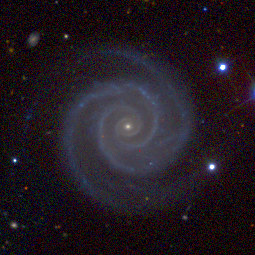
The image above shows an insignificant part of our great big universe. Does God really have a place in the universe ? Einstein did NOT, but Newton did, believe in God the Creator.
Newton's View of God
Was Newton a Pantheist or a theist ? Or was he an Atheist ?
' ... but to myself I seem to have been only like a little boy playing on the seashore, and diverting myself in now and then finding a smoother pebble or prettier shell … , whilst the great ocean of truth lay all undiscovered before me. '
We learnt of this famous reflection while at school, which filled us with awe and wonder. We knew the speaker as a great man of science who man owes the knowledge of the laws of motion and the law of universal gravitation to. Little did we know then that this great scientist and one of the greatest men was a deeply religious man too, who, as claimed by an author, wrote on religious issues not less than an incredible ‘ four million words ‘[1], which fact suggests that the legendary scientific genius expended far more labour and time on the study of theology than on his pursuit of scientific knowledge. Another author claims that he was a ‘ devout Christian ‘.[2]
A true Christian can’t be an atheist. And surely an atheist wasn’t he. The fact that Sir Isaac Newton had firm, deep-rooted belief in God is evident from the following citations that occur in his famous Principia. This great man of science described the God of his faith this way : ‘ The Supreme God is a Being eternal, infinite, absolutely perfect … and from his true dominion it follows that the true God is a living, intelligent, and powerful Being. ‘[3] The discoverer of the law of universal gravitation found it difficult, when he wrote Principia, to believe that the regular, orderly planetary motion in the universe is the result of the action of the force of gravity alone, which he viewed as the apparent cause for it and thought of the role of ‘ an intelligent … Being ‘ as the true cause underlying this apparent cause.
‘ This most beautiful system ‘, wrote Newton, ‘ of the sun, planets, and comets, [sic] could only proceed from the counsel and dominion of an intelligent and powerful Being. … This Being governs all things, not as the soul of the world, but as Lord over all ‘.[4] Nevertheless, later Newton seems to have reviewed his position and accepted the gravity as the only force that makes celestial bodies keep orbiting in definite elliptical orbits without any divine intervention. The following observation Newton is believed to have made corroborates this view: ‘ Gravity explains the motions [sic] of the planets, but it cannot explain who set the planets in motion. ‘[5]
In order to be set in its orbital motion, a planet must have a high initial speed, otherwise it’ll fall, as an apple drops onto the ground, and disappear into a gaping hole of the flaming sun. It must be a great force that generated the necessary initial speed for planets. Newton conceived of his God as the origin of this great tangential force, the well-known Newtonian ‘ First Impulse ‘.
From the above, it follows that Newton viewed his God as ‘ the true God ‘ and ‘ the Supreme god ‘ that was not only ‘ eternal, infinite, absolutely perfect ‘ but ‘ a living, intelligent, and powerful Being ‘ as well. Further, in Newton’s Opticks, we encounter this query : ‘ [D]oes it not appear from phenomena that there is a Being incorporeal, living, intelligent, omnipresent ‘ ?[6] It shows that Newton also saw his God as ‘ incorporeal ‘ and ‘ omnipresent ‘ as well as the very source of the ‘ First Impulse ‘.
From the above, it also follows that Newton believed in one God, that is he was, like a true ‘ devout Christian ‘, a monotheist. But, it must also be noted that Newton outright rejected the Christian doctrine of the Trinity ( i.e. the oneness of God the Father, God the Son, and God the Holy Ghost ) and denied the divinity of Jesus Christ who, by the Christian faith, is viewed as God the Son. According to Steven E. Jones, ‘ Newton considered giving up his position [Lucasian Professorship of Maths] ‘ at Trinity College ( under the Cambridge University ) rather than submit to the Anglican Church’s mounting pressure on him to take holy orders, so rigid a stance he took on the Trinity question and the question of Christ’s divinity.[7] ‘ In Newton’s day, any fellow of Cambridge or Oxford had to be an ordained priest in the Anglican Church. When he accepted the position [Lucasian Professorship of Maths], Newton promised to take holy orders in the near future but kept postponing it for several years because his personal beliefs were in disagreement with [the] Anglican doctrine. ‘[7] However, before he resigned the position in question, Newton wrote to the King who granted the Lucasian Professor’s request for ‘ a special dispensation ‘, and thus Newton was able to avoid the humiliation of ordination in the Anglican Church and save both his dignity and his job.[7]
Newton could not stomach the absurd idea that both the father and the son were the same person. He himself studied the texts of different versions of the Bible and consulted works of early Christian writers. He extracted relevant passages from the holy scriptures which demonstrated that contrary to what the Church of England propagated, the scriptures corroborated the view that the Father ( i.e. God the Father ), the Son ( i.e. Jesus ), and the Holy Ghost were three distinct members of the Godhead.[8] He found a passage in the Bible which contained the Son’s confession to the effect that the Father was greater than him.[8] He also found another Biblical passage in which the Son called the Father his God.[8] And the third item on the list of twelve reasons Newton is believed to have composed to justify his anti-Trinitarian stand reads: ‘ Whenever it is said in the scriptures that there is but one God, it is meant the Father. ‘[9] Of equal significance in this regard are the 6th, 7th, and the 9th items on this list too. They read as follows.
‘ 6. The Son confesseth the Father greater, then calls him his God etc. ‘
‘ 7. The Son acknowledgeth the original prescience of all future things to be in the father only. ‘
‘ 9. It was the son of God which He sent into the world and not a human soul that suffered for us. … ‘
It’s obvious from the above that to Newton’s eyes, the Biblical God the Father was the only God, and that he didn’t recognise Jesus as God.
‘ We must believe in one God … We must believe that he is the father Almighty, or first author of all things by the almighty power of his will, …
We must believe that this is the God of Moses & the Jews who created heaven & earth & the sea & all things therein …, that we may not take his
name in vain nor worship images or visible resemblances nor have ( in our worship ) any other God then [ read than ] him. ‘[10]
The foregoing reflections on God are also ascribed to Sir Isaac Newton. They clearly show that Newton also saw the God of his faith as the Creator of the universe. They also suggest that he was opposed to idolatry ( i.e. worshipping images ). He was opposed to idolatry because ‘ he is without similitude he is the invisible God whom no eye hath seen nor can see, & therefore is not to be worshipped in any visible shape. He is the only invisible God & the only God whom we are to worship & therefore we are not to worship any visible image picture likeness or form. ‘[11]
Newton didn’t succeed in getting his religious views that contradicted the official views of the Church of England published during his lifetime. Nevertheless, he was dead certain of the rightness of his position on these issues and refused viaticum at the time of his death.
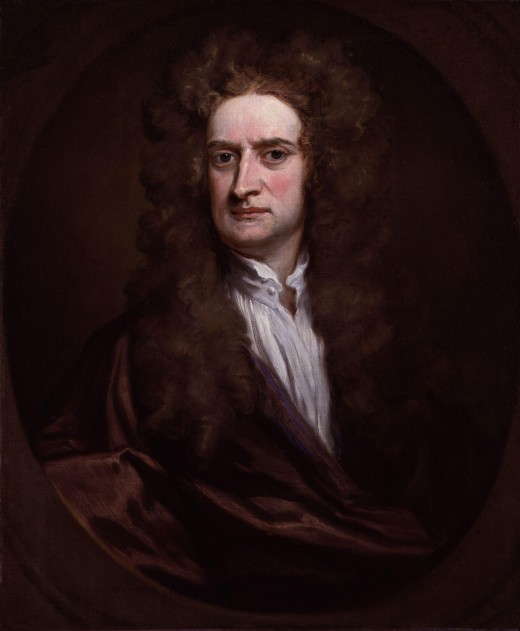
Few know that the great scientist Sir Isaac Newton was also a devout Christian. I've heard he wrote on his view of God about 4 million words of which not a single word makes sense. He believed that God, although incorporeal, had manhood. He also believed that God created the universe out of nothing.
references:
[1] How religious was Isaac Newton ? by FMS ( @ http://seileronscience.blogspot.in/2012/01/how-religious-was-isaacd-newton.html )
[2] A Brief Survey of Sir Isaac Newton’s Views on Religion by Steven E. Jones ( @ http://rsc.byu.edu/archived/converging-paths-truth/brief-survey-sir-isaac-newtons-views-religion )
[3] Quoted by Steven E. Jones in A Brief Survey of Sir Isaac Newton’s Views on Religion by Steven E. Jones ( @ http://rsc.byu.edu/archived/converging-paths-truth/brief-survey-sir-isaac-newtons-views-religion )
[4] Quoted by Christine Dao; see Man of Scienc, Man of God: Isaac Newton ( @ http://www.icr.org/article/newton/ )
[5] Quoted by Christine Dao; see Man of Scienc, Man of God: Isaac Newton ( @ http://www.icr.org/article/newton/ )
[6] Opticks by Newton; p 345
[7] Newton’s Key to Correctly Understanding Scripture; A Brief Survey of Sir Isaac Newton’s Views on Religion by Steven E. Jones ( @ http://rsc.byu.edu/archived/converging-paths-truth/brief-survey-sir-isaac-newtons-views-religion )
[8] Newton on the Nature of the Godhead; ibid
[9] Newton’s Arian beliefs ( @ http://www-history.mcs.st-and.ac.uk/Extras/Newton_Arian.html )
[10] Quotes; see Isaac Newton ( @ http://en.wikiquote.org/wiki/Isaac_Newton )
[11] ibid
Einstein's God versus Newton's God
You have to choose between two Gods. By which scientific logic are you going to justify your choice ?
Albert Einstein believed in the Spinoza’s God, but Sir Isaac Newton believed in the Biblical God ( God the Father ). The Spinoza’s God is indistinguishable from Nature. Because the creator can’t create itself, the idea that God created Nature did never find favour with Einstein. Actually, as i see it, Einstein didn’t believe in the doctrine of the Creation. Rather, he believed the universe existed ever before and would exist for ever afterwards. But the Biblical God is distinct from Nature, and so Newton didn’t have any difficulty seeing God as the Creator. Both Einstein and Newton believed that God was incorporeal. Nevertheless, while Einstein outright rejected the idea of any personal God, Newton believed God was a person (‘ a living, intelligent, and powerful Being ‘). A non-personal God can’t have any gender. Einstein didn’t believe that God was masculine. But the Biblical God the Father is evidently a male God. Einstein didn’t believe that God was omnipotent while Newton loved to conceive of his God as the ‘ father Almighty ‘ that ‘ governs all things, … as Lord over all ‘.
Einstein didn’t, but Newton did, believe that God stayed in mosques, temples, and churches and listened to and answered man’s prayers and worship. Nevertheless, both of them were opposed to worshipping idols. Einstein didn’t believe in a God that bothered about the ‘ fate and action of men ‘ and punished or rewarded them according to their deeds. But Newton believed that the ‘ father Almighty ‘ kept an account of every human’s actions throughout their life and tried them after death ( the ‘ father Almighty ‘ is, however, unable to touch your hair before you die ) and sent them either to hell or to heaven for all eternity.
By Newton’s belief, God ‘ governs all things ‘, which means every happening in Nature is due to the will of the ‘ father Almighty ‘. But by Einstein’s belief, God’s only business is to keep order and harmony in the universe. It means Einstein didn’t, but Newton did, believe that rain, storms, thunderbolts, quakes, tornadoes, typhoons, tsunamis, cyclones, anticyclones, etc, etc all that came into being and disappeared in Nature owed their origins to the omnipotent God’s will.
Einstein wasn’t opposed to the law of universal gravitation, by which law it happens to be the force of gravity alone that accounts for the regular, orderly planetary motion. But Einstein didn’t clarify how the law of universal gravitation can leave room for any divine intervention in matters of order and harmony in the universe.
Newton believed in the divine ‘ First Impulse ‘ that set planets in their orbital motion. But Einstein was never heard to stand for such a silly idea.
Einstein didn’t, but Newton did, believe that God the Father created man along with other life forms, and that He created the first man Adam out of earth’s dust and the first woman out of a rib of Adam’s. Newton didn’t, but Einstein did, believe in Darwin’s Theory of Evolution.
SCIENTIFICITY of Scientific Theism
How scientific is Einstein's belief in Spinoza's God ?
What scientific logic led Einstein to believe in the ‘ Spinoza’s God ‘ ? I don’t know yet. Does anyone have any idea of it ? Baruch Spinoza was not a scientist. A seventeenth century metaphysician, Spinoza was, it is said, a pantheist who believed that God was identical with Nature.
‘ By God I understand a being, ‘ said Spinoza, ‘ absolutely infinite, i.e., a substance consisting of an infinity of attributes, … ‘[1]
Is God ( hence, Nature ) ‘ a being ‘ ?! Is it ‘ infinite ‘ and incorporeal too ?! An infinite, incorporeal being ?! Did Einstein really have the cognisance of a body-less, real creature of infinite dimensions ? Spinoza also conceived of his God as ‘ a substance ‘. ‘ There is only one substance ‘, wrote Spinoza, ‘ in the universe; it is God; and everything else that is, is in God. ‘[2] If there happens to be ‘ only one substance ‘ in Nature, the expressions like ‘ a substance ‘ ( in Spinoza’s Proposition ( SP ) 1 ), ‘ Two substances ‘ ( in SP2 ), ‘ the substances ‘ ( SP 4 ), ‘ two or more substances ‘ ( SP 5 ), ‘ One substance ‘ and ‘ another substance, ( SP 6 ), ‘ a substance ‘ (SP 7, SP 10, SP 11, SP 12, & SP 13 ), ‘ Every substance ‘ ( SP 8 ), and ‘ no substance ‘ (SP 14 ) are all erroneous and nonsensical. Thus, almost all of Spinoza’s 14 propositions are seriously flawed.[3]
The SP 1 reads: ‘ A substance is prior in nature to its affections. ‘[3] In English ‘ A cow ‘ or ‘ The cow ‘ is used to mean any cows or cows in general. Obviously, the phrase ‘ A substance ‘ suggests the existence of more than one substance in nature, doesn’t it ? Thus, if the translation is right, Spinoza evidently contradicts himself in this proposition.
SP 2 reads: ‘ Two substances having different attributes have nothing in common … ‘[3] It obviously suggests there’re not only two substances with ‘ different attributes ‘ but two substances with some common attributes as well ( just like two planets in the solar system ).
SP 4 has this expression: ‘ by a difference in the attributes [ ... ] of the substances ‘[3] It also suggests the existence of two or more substances with dissimilar attributes.
SP 5: ‘ In nature, there cannot be two or more substances of the same nature or attribute. ‘[3] This proposition clearly implies there can be two or more substances of different nature or attributes in Nature, as I see it.
SP 6: ‘ One substance cannot be produced by another substance. ‘[3] It’s implied that there’re a number of distinct substances one of which ‘ cannot be produced by another ‘, isn’t it ?
SP 7: ‘ It pertains to the nature of a substance to exist. ‘[3]
SP 8: ‘ Every substance is necessarily infinite. ‘[3] This proposition doesn’t make sense unless there’re a number of substances each of which is ‘ necessarily infinite ‘.
SP 10: ‘ Each attribute of a substance … ‘[3] Does it make sense unless there’re more than one substance, and unless each substance has got more than one attribute ?
SP 11: ‘ God, or a substance consisting of infinite attributes, each of which expresses eternal and infinite essence, necessarily exists. ‘[3] It’s implied that substances consisting of finite attributes each of which expresses non-eternal and finite essence, necessarily exist, as well.
SP 12: ‘ No attribute of a substance can be truly conceived from which it follows that the substance can be divided. ‘[3] It implies there’re a number of substances, but no substances have got such an attribute that suggests they’re divisible.
SP 13: ‘ A substance which is absolutely infinite is indivisible. ‘[3] It obviously suggests there’re finite, divisible substances too.
SP 14: ‘ Except God, no substance can be or be conceived. ‘[3] It tells that every substance is God or is to be conceived of as God. Thus, it’s implied that there’re more than one substance, all of which are to be conceived of as God.
The expression ‘ a substance consisting of an infinity of attributes ‘ also suggests that there exists a substance with a finite number of attributes. Thus, by this expression too, Spinoza contradicts himself. And the expression ‘ everything else ‘ in ‘ There is only one substance … everything else that is, is in God ‘ suggests there’re many things that do not belong to the category of ‘ substance ‘, i.e. they’re unsubstantial. What did Spinoza mean, and what did Einstein understand, by ‘ everything else ‘ or unsubstantial things that were present in the universe ? I must admit to my ignorance. Some other one more informed than me might know.
Spinoza employed a novel line of argument to prove his thesis that God ‘ necessarily exists ‘ ( see SP 11 in the foregoing ). It was as follows.
‘ If you deny this [ i.e. the existence of God ], conceive, if you can, that god does not exist. Therefore, by axiom 7 [ " If a thing can be conceived as not existing, its essence does not involve existence " ], his essence does not involve existence. But this, by proposition 7, is absurd. Therefore, God necessarily exists, q.e.d. ‘[4]
The problem with this line of argument is you can use it to prove whatever you please, be it the existence of a dragon or a ghost, or the proposition that dinosaurs bring rain. A dragon is a substance. ‘ It pertains to the nature of a substance to exist. ‘ ( Proposition 7 ) Conceive that dragons don’t exist. Then, by axiom 7, the essence of a dragon cannot involve existence. But, by proposition 7, this is absurd. A dragon being a substance, it pertains to the nature of a dragon to exist. Hence, its essence does involve existence. Therefore, dragons necessarily exist. Similarly, you can prove that dinosaurs, demons, unicorns, etc, etc also necessarily exist. And by similar arguments, you can make your God as well as dinosaurs, demons, etc give rain, bear fruit, produce milk, etc, etc. An illustration is as follows. Cloud brings rain ( i.e. it pertains to the nature of cloud to bring rain ). God is a piece of cloud ( it means it pertains to the nature of God to bring rain ). Hence, God necessarily brings rain, for if it fails to do so, it’d mean that God’s essence doesn’t involve its capability of bringing rain, which means that it doesn’t pertain to the nature of God to bring rain, and thus we’re led to an obvious contradiction. Similarly, by assuming that God ( or a dinosaur ) is a tree that bears fruit, you can make God ( or a dinosaur ) bear fruit too.
Spinoza arbitrarily assumes that God is a substance that exists. Then, with all ease, he arrives at the conclusion that God exists. As I see it, it adds up to assuming the truth of what is to be proved true. If he is right, then you can’t be wrong to take God for a rain-bearing cloud or a tree bearing fruit or a milch cow, to my way of thinking.
As I see it, Spinoza’s was a silly metaphysical bid to have cognisance of this great, awe-inspiring, mysterious Nature, he was born in. It can not by any manner of means become a man of science to fail to see the silliness and hollowness such a line of reasoning.
Did Einstein really believe, as Spinoza did, that the universe is comprised of a single, unique, indivisible, and infinite substance ? According to modern science, we know, the universe contains matter, anti-matter, energy, space, time, etc, etc. By a corollary to Einstein’s special theory of relativity, matter and energy are interconvertible. Matter is viewed as frozen energy. But neither matter nor anti-matter can be viewed as Spinoza’s indivisible substances. In nuclear and thermonuclear reactions ( i.e. fission and fusion ) matter is transformed into energy. The union of matter and anti-matter results in the disappearance of both. Particle accelerators create new matter and anti-matter from energy. Space and time are distinct from matter. Einstein didn’t find any empty space in the universe. ‘ There is no such [a] thing, ‘ remarked Einstein, ‘ as an empty space, i.e., a space without field. Space-time does not claim existence on its own, but only as a structural quality of the field. ‘[5]
What did Einstein believe to be the single unique, infinite, and indivisible substance that made up Spinoza’s Nature or God– matter, anti-matter, energy, space, time, or field, I wonder.
Further, Einstein believed in a spatially finite universe. When he published his General Theory of Relativity ( GTR ) in 1915, Einstein believed that the universe was static and finite.But his field equations ( mathematical expression of the GTR ) showed that the universe must be either expanding or contracting. In order to make his universe conform to his belief, in 1917 Einstein introduced into his equations a ‘ cosmological constant ‘ which was equivalent to a force expected to counteract the gravitational pull between galaxies and thus prevent the universal expansion or contraction. Later, after Edwin Hubble’s discovery of the fact that our universe is fast expanding, and which led George Lemaitre to conceive of an expanding universe that began with a Bing Bang, Einstein considered the introduction of the ‘ cosmological constant ‘ the ‘ biggest blunder ‘ of his life. Nevertheless, Einstein doesn’t seem to have dismissed the ‘ cosmological constant ‘ from his head.
As reported by Amir Aczel[6], in their recent paper, the physicist Cormac O’Raifeartaigh and his colleagues have claimed to have found an unpublished paper ( titled ‘ Zum Kosmoloschen Problem ‘ ) of Einstein’s which corroborates the view that in 1930s Einstein still stood by his ‘ cosmological constant ‘ in his field equations, which he considered necessary for the matter density to remain constant in an expanding universe. ‘ If one considers a physically bounded volume, ‘ wrote Einstein, ‘ particles of matter will be continually leaving it. For the density to remain constant new particles of matter must be constantly formed in the volume from the space. ‘[7] Einstein intended his ‘ cosmological constant ‘ to perform this job, i.e. the creation of ‘ new particles of matter ‘[7]
But the creation of new matter means the loss of a lot of energy as matter has to be created out of energy, not out of a void, and as by the law of conservation of mass-energy, the sum-total of mass and energy in the universe is constant. Thus, if new matter makes the density of matter in the expanding universe remain unaltered, its energy density is bound to fall. Therefore, I feel dubious of whether Einstein’s ‘ cosmological constant ‘ can make any real difference overall as far as the matter density or mass-energy density of the universe is concerned. Moreover, with every new particle of matter, a new particle of anti-matter would come into being. What part are these particles of anti-matter to perform in the expanding universe ? I don’t know yet whether Einstein considered this question.
Nevertheless, the point is Einstein accepted the fact that the universe is expanding. An expanding universe can’t be infinite. Einstein never stood for the idea of an infinite universe. But Spinoza’s universe was infinite. Did Einstein take cognisance of this glaring contradiction between his concept of the universe and Spinoza’s ? Whether the universe is finite or not is a question finding the answer to which is, as I see it, natural scientists’ business. It’s not a philosopher’s or metaphysician’s job. In the 17th century, natural science made too little progress to be able to answer so big a question. Newton discovered laws of motion and the law of universal gravitation in the 17th century. But Einstein’s General Theory of Relativity was published in 1915. I haven’t heard of any natural scientist of the17th century who said anything conclusive or sensible on this question. Spinoza, a metaphysician of the 17th century, outright arbitrarily assumed the universe to be infinite while Einstein’s concept of a spatially finite universe rested on strong scientific foundation. By the General Theory of Relativity, gravity warps space.And the fact that space gets warped by gravity suggests a finite universe. Did Einstein care to know what scientific logic supported Spinoza’s infinite universe, I wonder. The universe being finite, Spinoza’s God that Spinoza conceived of as indistinguishable from the universe and infinite can’t be regarded as infinite. I’m also moved to wonder whether Einstein took cognisance of this point ?
In a finite universe, neither matter, nor energy, nor space, nor what Spinoza conceived of as ‘ substance ‘ can be infinite, can it be ?
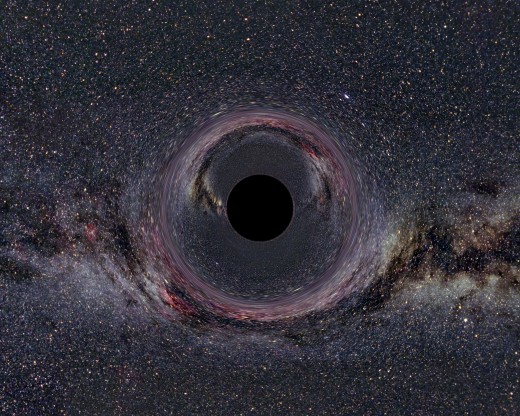
The universe consists of numberless stars, galaxies, quasars, pulsars, nebulae, et cetera, et cetera along with so many massive and supermassive dark bodies called black holes. Still, Einstein believed the universe is finite. Nevertheless, Spinoza believed in God the Infinite, and his view of the universe was identical with his view of God.
What part does Spinoza's God perform in the universe ?
According to Stanford Encyclopedia of Philosophy, ‘ [Spinoza's] God does not ” do ” things for the sake of anything else. The order of things just follows from God’s essences with an inviolable determinism. All talk of God’s purposes, intentions, goals, preferences or aims is just an anthropomorphising fiction. … God is not some goal-oriented planner … Things happen only because of Nature and its laws. ” Nature has no end set before it … All things proceed by a certain eternal necessity of nature. ” To believe otherwise is to fall prey to the same superstitions that lie at the heart of organized religions. ‘[8]
From the above, it appears obvious that Spinoza’s is a passive God. It’s got no ‘ purposes, intentions, goals, preferences [n]or [any] aims ‘, and for this reason, it can’t have any motive for waking up from its deep divine slumber. But, by Einstein’s belief, Spinoza’s God ‘ reveals himself in the harmony of all that exists ‘.[9] From this it’s not clear whether Einstein believed Spinoza’s God was active or a passive one. Nevertheless, if ‘ Things happen only because of Nature and its laws ‘ and if ‘ All things proceed by a certain eternal necessity of nature ‘, I feel dubious of whether there at all exists any scope for God, be it Spinoza’s or Biblical, to perform a part in keeping order and harmony in the universe. Further, I don’t think the General Theory of Relativity or the cosmic forces* admit of any divine role in the universal phenomena. Thus, it appears outright incomprehensible what scientific logic persuaded Einstein to believe in Spinoza’s God that revealed itself ‘ in the harmony of all that exists ‘.
[* The four kinds of cosmic forces in question are : 1. gravity; 2. the electric force (& magnetism); 3. nuclear force; and 4. the weak force that plays a key part in changing a kind of sub-atomic particle into another.]
references :
[1] Baruch Spinoza, 2.1 God or Nature; Stanford Encyclopedia of Philosophy ( @ http://plato.stanford.edu/entries/spinoza/ )
[2] ibid
[3] ibid
[4] ibid
[5] The Concept of Space in the General Theory of Relativity; Relativity and the Problem of Space; Ideas and Opinions by Albert Einstein ( @ namnews.files.wordpress.com/2012/04/29289146-ideas-and-opinions-by-albert-einstein.pdf )
[6] Einstein’s Lost Theory Describes a Universe without a Big Bang ( @ http://blogs.discovermagazine.com/crux/2014/03/07/einsteins-lost-theory-describes-a-universe-without-a-big-bang/#.U6558vmSxec )
[7] ibid
[8] Baruch Spinoza ( @ http://plato.stanford.edu/entries/spinoza/ )
[9] Einstein’s Universe (chapter 20) by Nigel Calder
How scientific is Newton the Believer's view of God ?
Sir Isaac Newton believed in the Biblical God the Father. This implies that not only did Newton the Believer believe in a personal God, he also believed God was masculine. At the same time, Newton also believed that God the Father was ‘ incorporeal ‘ and ‘ invisible ‘. Readers shouldn’t miss the point that Newton was outright opposed to idolatry, and the principal reason for this was he believed God that was ‘ incorporeal ‘ couldn’t have an image and so couldn’t be visible. Can a sensible human make sense of something that happens to be incorporeal still is personal and possesses a penis ? Can a sensible human think it was Newton the Great Man of Science who cherished such silly ideas ?
Newton also believed God the Father bothered a lot about the humanity, kept a record of every human’s doings during their lifetime, and tried them after death to reward and punish them according to their good doings and wrong doings. He didn’t question the rightness of trying a man after his death and punishing or rewarding him by what he did before death. I’ve got no idea of what scientific logic persuaded him to believe in all this silly stuff.
Newton also believed in the Biblical creationism by which God the Father was the Creator. But Einstein didn’t believe in the Creator because in his view the universe was never created. According to Einstein, the universe had no beginning, nor would it ever come to an end. Newton was born long before Einstein. He didn’t have any knowledge of the General Theory of Relativity, nor did he hear about Hubble’s findings. He’d got no idea of the expanding universe or the Big Bang. But he was a great mathematician and physicist that discovered laws of motion and the law of universal gravitation. Still, he didn’t question, in a manner unbecoming to a scientific figure of his stature, the truth of the silly Biblical tale of Creation.
What appears most odd and intriguing is the discoverer of the law of universal gravitation, even when he wrote Principia, himself couldn’t believe it’s gravity alone that is responsible for the regular, orderly planetary motion and conceived of a divine intervention in such celestial phenomena. Nevertheless, later he got rid of this unscientific attitude and misconception and accepted gravity as the only force that makes these heavenly bodies keep on orbiting in their respective orbits. But, still, he couldn’t rid himself of the thought of the divine intervention in celestial phenomena. Because the law of universal gravitation could not account for from where or how planets got the required initial speed that prevented their fall into the blazing womb of the sun and set them in their orbital motion, Newton conceived of his God the Father as the source of the ‘ First Impulse ‘ that provided planets with the initial speed in question.
As I see it, Newton behaved like those half-literate blind believers that are used to referring to an as-yet unanswered question or unexplained event and arguing that as science has not been able to answer this or explain that, it follows that there exists a God that’s responsible for such events they claim to be inexplicable.
Science aims at finding answers to unanswered questions and explaining unexplained phenomena. Science doesn’t consider anything inexplicable, nor does it ascribe any event to God or similar some imaginary thing. A great many unanswered questions of the past centuries no longer remained unanswered in the following centuries. There’s no reason Newton should fail to take cognisance of this simple fact. Ought Newton to have failed to comprehend that the fact that the question regarding the origin of the ‘First Impulse ‘ remained unanswered in his lifetime simply pointed to the limitations of the science of his time ? Newton was outright wrong to ascribe the ‘ First Impulse ‘ to his God, I reckon. First, this act of his reflects an obviously unscientific attitude. Second, by doing this Newton didn’t help the humanity an iota to gain cognisance of the universe.
The question concerning the origin of the ‘ First Impulse ‘ seems to be inseparably associated with the origin of the universe. However, by Einstein’s view, the universe was never born; it existed ever before and would exist for ever. If this view is true, there arises no question of the origin of the ' First Impulse ' as the universe itself is without any origin. But, according to Lemaitre’s Big Bang theory, the universe was born with a great big explosion, the Big Bang, around 15-20 billion years ago. And the origin of the Newtonian ' First Impulse ' happens to be the Big Bang.
Nevertheless, natural scientists have yet to find a conclusive answer to this crucial question. But, Newton’s stance on this question is plain unacceptable, to my way of thinking.
Newton believed God created the universe. And as there existed nothing before the creation, Newton must have also believed God created the universe out of the infinite void. Thus, by Newton’s belief, God must be a super conjuror that could conjure anything out of nothing. But this is against the laws of physics by which nothing can emerge out of nothing. Newton didn’t clarify what scientific logic led him to believe that God the Father could make such miracles happen. Nor did he clarify how God accomplished the miracle of the Creation. Nevertheless, if God is to be the Creator, God must have existed before the Creation. Did Newton consider this point ? Where did God exist before the universe came into being ? By the concept of the simple universe based on Einstein’s General Theory of Relativity, there was no space nor any time before the birth of the universe. Time began with the Big Bang, and space came into being with it too. And Einstein ruled out the existence of any empty space or void. Where was Newton’s ' incorporeal '-yet-personal-and-masculine God before the Creation ? If God is to be the Creator, it must be God the Infinite Nought because by creationism, there happened to exist the INFINITE NOUGHT before the Creation. Evidently, Newton the Great Man of Science failed to see this simple logic that whoever is endowed with the reason that you need to grasp the simple arithmetic logic that two and two makes four oughtn't to fail to see.
Newton also believed God the Father was ' omnipresent '. Can a sensible human visualise something ' omnipresent ' ? We can see humans in all countries and continents. But, of course, they’re not the same individual with different looks, are they ? Newton also believed God the Father was ' a living, intelligent, and powerful Being. ' Can a sensible human make sense of a body-less ( ' incorporeal ' ) creature ( ' living ' ' Being ' ) that’s got a brain (because that’s ‘ intelligent ‘) too ? Science tells us about four kinds of cosmic forces. They are: 1. gravity; 2. the electric force (& magnetism); 3. the strong nuclear force, and 4. the weak force that performs a key part in changing a kind of sub-atomic particle into another. All these forces are inseparable from matter. But God, Newton wants us to believe, is a force independent of matter.
Newton didn’t believe in Darwin’s Theory of Evolution. He found nothing wrong with the Biblical tale of the Creation and believed God the Father created life on the earth. He also believed that God created the first man Adam out of the earth’s dust alone and made him alive by breathing the breath of life into his nostrils, after which He created the first woman Eve out of a rib of Adam’s.
It is said that Newton wrote about four million words on God and theological issues. Four million words ?! It appears astonishing and incredible, doesn’t it ? Newton’s scientific works are mainly two books: (1) Philosophae Naturalis Principia Mathematica ( the famous Principia ) and (2) Opticks: Or, A Treatise of the Reflections, Refractions, Inflexions and Colours of Light (three books). Principia, considered the single greatest work in the history of science, has got not more than 600 pages. One page containing on an average 300 words, the total word count of Principia works out at at the most 180,000 (<0.2 million). Assuming his Opticks ( 406 pages ) has got less than 180,000 words, Newton’s total scientific works do not seem to contain over 0.4 million words. The four million figure is equal to around ten times the total number of words contained in Newton’s total scientific works and over twenty times the total number of words of the Principia. That means Newton’s complete theological writing is equivalent to more than twenty Principias or about ten books each of which contains his all scientific works. Obviously, every sensible sort of a man is moved to wonder what prompted the great scientist to compose four million words on God and theology. What sensible message did he want to communicate to the humanity for which he had to create so many words that are equivalent to over twenty Principias ? I’ve heard Newton wrote four million words on God and related topics. But so far I haven’t heard anyone claim to have found a single word that makes sense amongst those four million words.
Frankly, wasting your precious time writing on such silly topics as God or religion the way believers do seems to me sheer madness, and Newton’s four million words amount to going beyond all limits, as I see it.
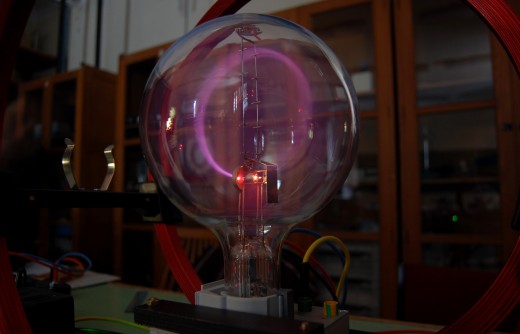
Newton had NO idea of a cyclotron ( also called particle accelerator ) or what its function is. He passed away long before man invented this novel machine and created matter and anti-matter with its help. Had Newton witnessed the creation of matter and anti-matter in labs, a regular and routine event in so many parts* of the world of today, would he still believe in God the Creator , I wonder.
* the USA, the UK, France, Russia, India, China, et cetera
SIGNIFICANCE of Great Scientists' Belief in God
Every sensible human is astonished that great figures of science like Albert Einstein and Sir Isaac Newton cherished silly ideas like belief in God and moved to wonder what the significance of this fact is. FMS has rightly asked, ' Does it prove that science and religion are fundamentally compatible ? ' [1] He posed this question in relation to Newton’s belief in Christianity. He also answered it : ' No. It does prove great scientific work can be done by men who have strong religious beliefs. ' [1] He then added: ' But they have to keep their religion out of their science. ' [1] I wholeheartedly subscribe to this view. Newton who discovered the Law of Universal Gravitation himself couldn’t believe what it necessarily implies, namely, it’s only gravity that’s responsible for the regular and orderly planetary motion. As it seems clear as day from his comments in Principia ( see the section ‘ Newton’s View of God ‘ of this discourse ), Newton, for a long time following his discovery of the law in question, couldn’t rid himself of the silly thought of the divine intervention in all universal phenomena. Einstein too couldn’t stomach the fact that his General Theory of Relativity suggests that the universe must be either expanding or contracting. He seems to have never accepted the view that the universe might have a beginning and the view that it might have begun with a Big Bang. The reason is the view of such a universe is in direct conflict with his pantheistic view of the world.
The point is what explains such silly behaviour of great people. Why should great men of science cherish such silly stuff as belief in God ? How come the same brain that’s got as much calibre as needed to discover the General Theory of Relativity or the Law of Universal Gravitation should fail to see the silliness of Spinoza’s logic or the Biblical tale of Creation ? The explanation of such curious things lies, as I view it, in our understanding of a basic feature of Nature, namely, the fact that it’s made up of opposites, such as flowering plants and nonflowering plants, the vertebrate and the invertebrate, the warm-blooded and the cold-blooded, living things and non-living things, luminescent bodies and non-luminescent bodies, matter and anti-matter, etc, etc. Among humans too we encounter theists and atheists, monotheists and polytheists, the rationalist and the superstitious, the progressive and the reactionary, the optimist and the pessimist, the learned and the ignorant, communists and capitalists, the exploiting class and the exploited, etc, etc. And not only that, it’s not at all uncommon or unnatural that the same person consists of opposite selves. A guy truly progressive on many an issue displays utterly reactionary traits on some other issues. Many an avowed rationalist is used to behaving outright irrationally in matters relating to sex and marriage. A sensible human ought not to fail to distinguish between Newton the Man of Science and Newton the Believer. It was Newton the Man of Science who wrote Principia while it was Newton the Believer who created four million words on God and theology. It’s Newton the Man of Science who was, as I see it, as much clever as stupid was Newton the Believer. The same holds true for Einstein too. It was his intelligent self, Einstein the Man of Science, who was an extraordinary genius that discovered the relativity theories and the equation E = mc2 and told the world that gravity not only warps space but can arrest light and create a black hole, as well. And alongside this intelligent self of his, there existed another Einstein, a silly bloke, so silly as to believe in such silly stuff as Spinoza’s God.
I haven’t as yet heard any theist say an intelligent word in support of their silly belief, and neither Einstein the Believer nor Newton the Believer seems to be an exception. Nevertheless, their belief in God, unlike the belief of other believers, does not seem to owe its origin to sheer fear ( fear of falling ill; fear of losing someone dear to you; fear of accidents; fear of misfortune, joblessness, loss in business, poverty, starvation, etc, etc, i.e. fear that reflects the helplessness of an individual that happens to be an insignificant member of society, plus the fear of being found out and punished after committing some wrong ). Einstein didn’t believe God responded to human prayers or worship and never took part in such things. And by denying the divinity of Jesus Christ and refusing viaticum on his deathbed, Newton proved his belief in God wasn’t fear-driven. As I see it, both Einstein and Newton were just awestruck by the vast mysterious Nature and ever so many unexplained natural phenomena.
reference :
[1] See the blog ‘ How religious was Sir Isaac Newton ? ' ( @ http://seileronscience.blogspot.in/2012/01/how-religious-was-isaac-newton.html )
CONCLUSION
Whatever a scientist believes or thinks is not science. It’s what the scientist has proved true scientifically that is accepted as a scientific truth. Neither Newton nor Einstein proved the truth of their belief in God. Further, there exists irreconcilable contradiction between Newton’s view of God and Einstein’s view of God. Newton believed in Christian monotheism but Einstein in Spinoza’s pantheism. Scientific logic supports neither. What should we do under the circumstances ? Should we get rid of our sense, reason, and wisdom ? We mustn’t, if we’re sensible humans. As I view it, what the world-famous men of science believed in regard to God and God’s role in the universe doesn’t deserve to be taken more seriously than similar silly beliefs of half-literate fools do because the former failed to furnish their beliefs at issue with corroborative scientific logic.
No humans are perfect– this wise saying holds true for both Newton and Einstein as well. A sensible human shouldn’t fail to distinguish between Newton the Man of Science and Newton the Believer– the former was as much intelligent as silly was the latter. The same is true of Einstein, the great scientific figure, and the Einstein that believed in Spinoza’s God, as I see it.

